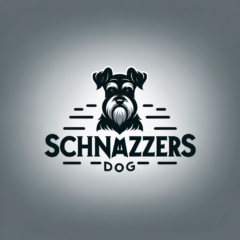When one thinks of a schnauzer, the first image that comes to mind is often one with a wiry coat and a bushy beard. This breed has long been associated with its iconic facial hair, making it stand out among other dog breeds. However, did you know that there are Schnauzers without beards? These unique canines have been gaining popularity in recent years, and it’s time we explore the world beyond the beard.
In this article, we’ll take a closer look at Schnauzers without beards, also known as beardless Schnauzers. From their history and characteristics to grooming and health considerations, we’ll uncover all there is to know about these fascinating dogs. So, let’s embark on a journey to discover the hidden traits of the Schnauzer family.
The Schnauzer Without a Beard: Exploring the Miniature Schnauzer
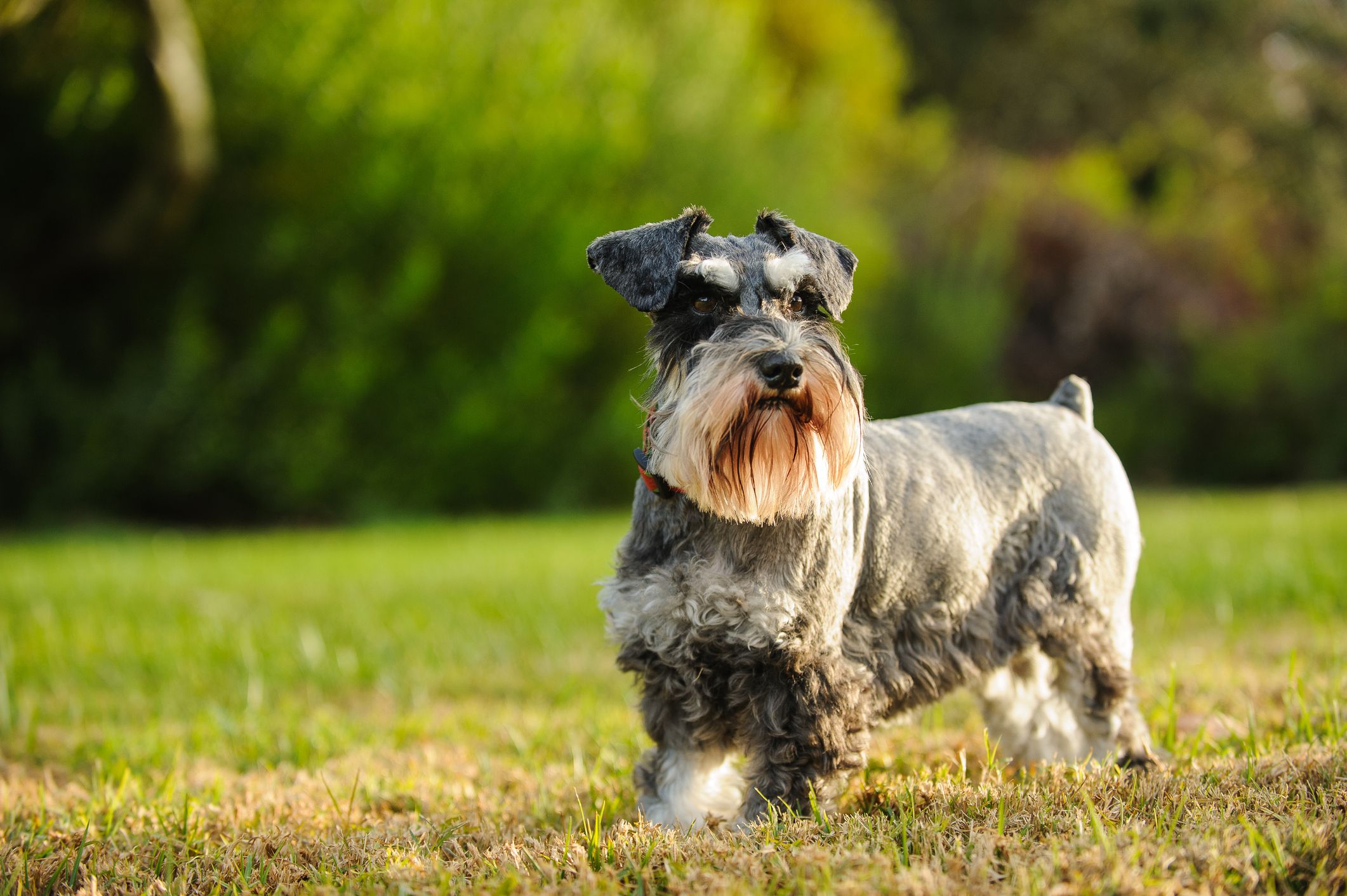
The Miniature Schnauzer, also known as the Mini Schnauzer, is the smallest of the three Schnauzer varieties. Standing at 12-14 inches tall and weighing between 11-20 pounds, they are compact but still possess all the qualities of their larger counterparts.
Originating in Germany in the late 19th century, Miniature Schnauzers were initially bred to catch mice and rats on farms. They were also used as guard dogs due to their vocal nature and protective instincts. Over time, these dogs became popular as companions, thanks to their charming personalities and loyalty to their families.
While all Schnauzers share certain traits, such as intelligence and a strong-willed nature, beardless Schnauzers may have slightly different characteristics compared to their bearded counterparts. Here are some key characteristics of the Miniature Schnauzer:
Personality
Miniature Schnauzers are known for their friendly, outgoing personalities. They are affectionate and love nothing more than spending time with their owners. These dogs have a strong desire to please, making them relatively easy to train. However, they can be stubborn at times, so early socialization and training are essential for beardless Schnauzers.
Appearance
Apart from lacking a beard, Miniature Schnauzers also have a softer, silkier coat compared to Standard and Giant Schnauzers. Their hair is typically shorter and smoother, making them more low-maintenance in terms of grooming. However, they still require regular brushing to prevent matting and keep their coats looking neat and tidy.
Temperament
While Miniature Schnauzers are generally friendly, they can be wary of strangers and may act as excellent watchdogs. They have a high prey drive, which means they may chase small animals or even children if not trained properly. With proper socialization, however, these dogs can get along well with other pets and children.
Grooming a Schnauzer Without a Beard: Maintaining a Neat Appearance
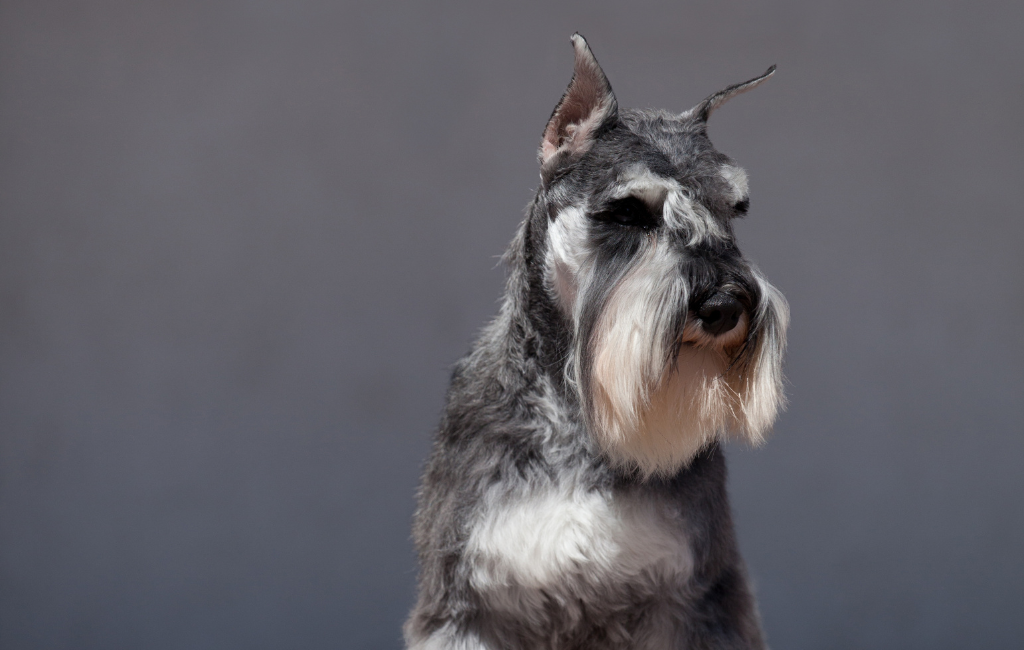
One of the most significant differences between bearded and beardless Schnauzers is their grooming needs. While bearded Schnauzers require regular trimming and shaping of their facial hair, beardless Schnauzers have a much simpler grooming routine. However, that doesn’t mean they don’t need any maintenance at all. Here are some key grooming considerations for Schnauzers without beards:
Hair Care
As mentioned earlier, the coat of a Miniature Schnauzer is softer and silkier compared to their bearded counterparts. This makes them less prone to matting, but they still require regular brushing to keep their fur tangle-free and healthy. It’s recommended to brush your beardless Schnauzer’s coat at least three times a week to remove any loose hair and distribute natural oils evenly.
Facial Hair
While Schnauzers without beards don’t require trimming on their faces, they may still have some facial hair that needs maintenance. Some Miniature Schnauzers may have a mustache or eyebrows, which can grow too long and obstruct their vision. Regular trimming of these areas is essential to keep your dog comfortable and prevent any eye irritation.
Bathing
Beardless Schnauzers don’t need frequent bathing, as their coats are more resistant to dirt and odors. However, it’s still recommended to bathe them every 6-8 weeks or whenever they become visibly dirty. Use a dog-specific shampoo and conditioner and avoid overbathing, as it can strip their coat of its natural oils.
Professional Grooming
While you can groom your Miniature Schnauzer at home, taking them to a professional groomer can also be beneficial. A groomer can help trim any excess hair around the feet, ears, and tail, keeping your dog looking neat and tidy. They can also provide nail trimming and ear cleaning services, ensuring your beardless Schnauzer is well-groomed from head to toe.
Health Considerations for Schnauzers Without Beards
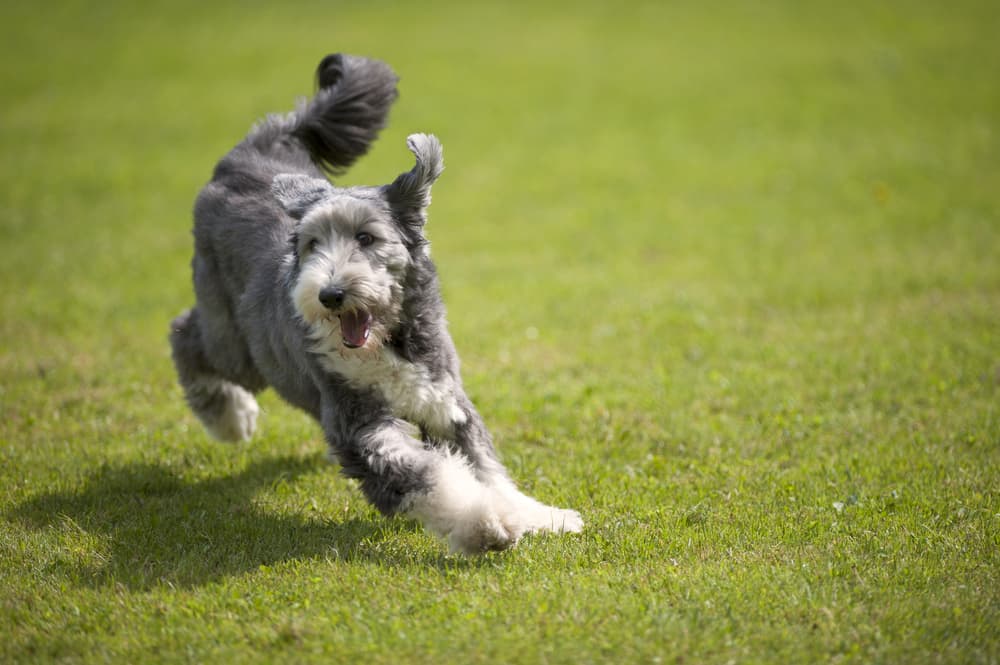
Schnauzers without beards are generally healthy dogs with a life expectancy of 12-15 years. However, like any other breed, they may be prone to some health issues. Here are some common health concerns that owners of Schnauzers without beards should be aware of:
Skin Allergies
Due to their soft and silky coat, Miniature Schnauzers may be more prone to skin allergies compared to their bearded counterparts. These allergies can manifest in several ways, including dry, itchy skin, hot spots, and infections. Regular grooming and proper nutrition can help prevent these issues, but if your dog shows signs of allergies, consult your veterinarian for treatment options.
Eye Problems
Miniature Schnauzers are prone to various eye conditions, such as cataracts and progressive retinal atrophy (PRA). PRA is a degenerative eye disease that can lead to blindness. Regular check-ups with your veterinarian can help detect these issues early on and provide the necessary treatment to prevent further complications.
Obesity
Being smaller in size, beardless Schnauzers are more prone to weight gain if not exercised regularly and fed a proper diet. It’s essential to monitor their food intake and ensure they get enough physical activity to maintain a healthy weight. Obesity can lead to other health issues, such as joint problems and diabetes, so it’s crucial to keep your dog at a healthy weight.
Training and Temperament of Schnauzers Without Beards
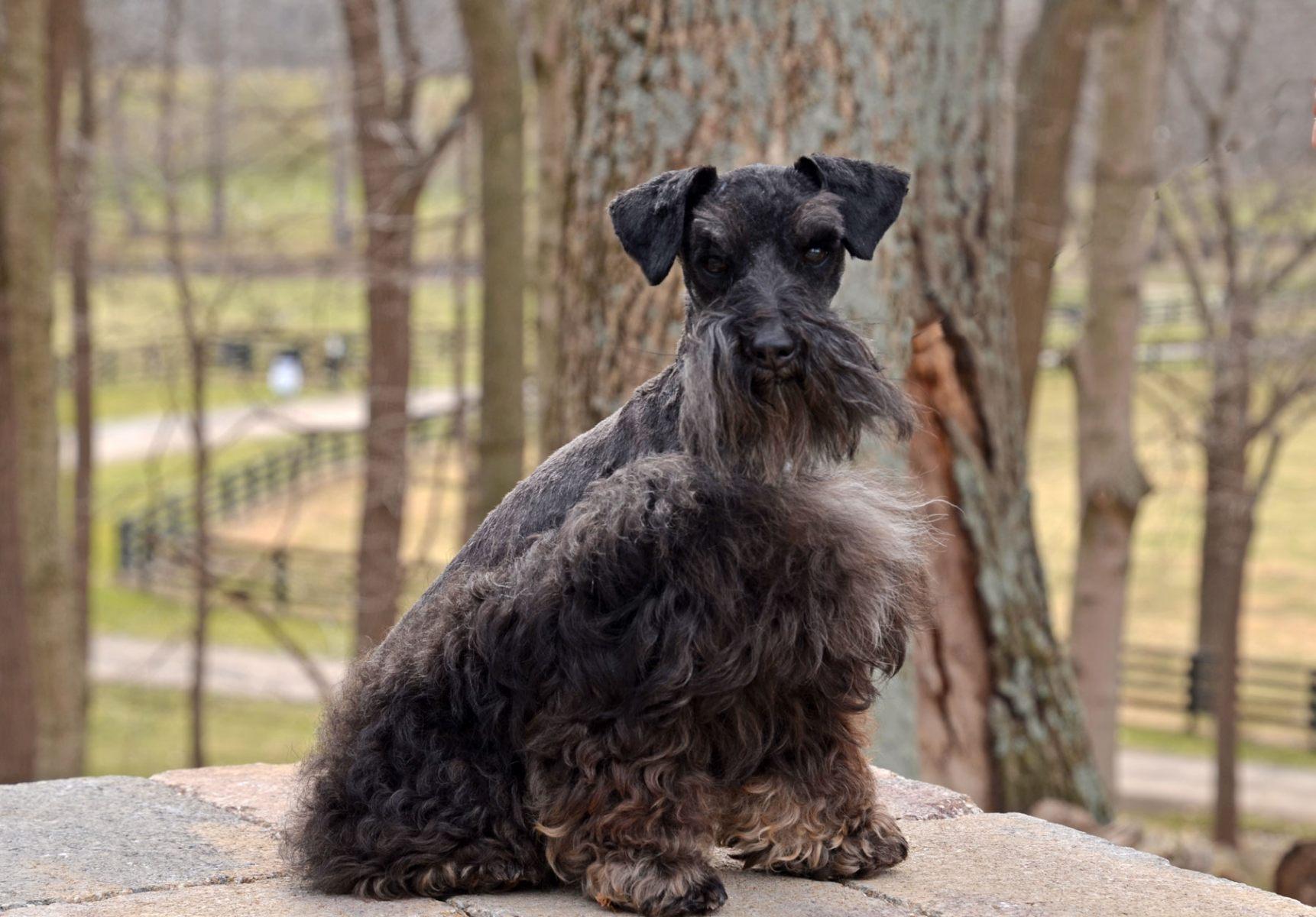
Miniature Schnauzers are intelligent and trainable, making them suitable for novice dog owners. However, they can also be stubborn and have a high prey drive, which means they will require early socialization and training to become well-rounded dogs. Here are some tips for training and managing the temperament of beardless Schnauzers:
Socialization
Exposing your Miniature Schnauzer to different people, animals, and environments from an early age is crucial for their development. This will help them become comfortable around new stimuli and prevent any aggressive or fearful behavior.
Positive Reinforcement
Beardless Schnauzers respond well to positive reinforcement methods, such as treats, praise, and playtime. They are eager to please, so using rewards to reinforce good behavior can be highly effective.
Consistency
Schnauzers without beards need consistent training and boundaries to prevent them from developing bad habits. Make sure to communicate your expectations clearly and stick to a routine to achieve desirable results.
Exercise
Although Miniature Schnauzers don’t require extensive exercise, they still need daily walks and playtime to burn off their energy. Lack of exercise can lead to destructive behaviors, so make sure to provide your beardless Schnauzer with enough physical and mental stimulation.
Schnauzers Without Beards: The Perfect Companion for You?

Now that we’ve explored the world of Schnauzers without beards, you may be wondering if they make good pets. The answer is a resounding yes! Miniature Schnauzers are loving, loyal, and make excellent companions for individuals and families alike. They can adapt well to apartment living and get along well with children and other pets when trained and socialized properly.
However, it’s essential to note that not all Miniature Schnauzers will be beardless. Some may still have facial hair, while others may only have minimal hair on their faces. It’s also worth mentioning that Schnauzers without beards are not a distinct breed; they are merely variations within the existing Schnauzer family. So, if you’re looking for a Schnauzer without a beard, make sure to do your research and find a reputable breeder who can guarantee the traits you’re looking for in your new furry companion.
Conclusion
Schnauzers without beards may not have the iconic facial hair associated with their breed, but they are just as lovable and unique as their bearded counterparts. From their charming personalities and low-maintenance grooming routine to their health considerations and training needs, these dogs offer a whole new perspective on the Schnauzer family. Whether you’re drawn to their soft coat or simply want a different twist on the classic Schnauzer look, these beardless wonders can make an excellent addition to any loving home.
